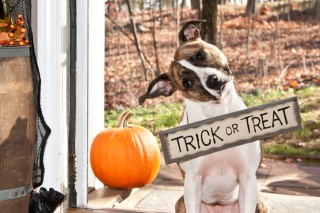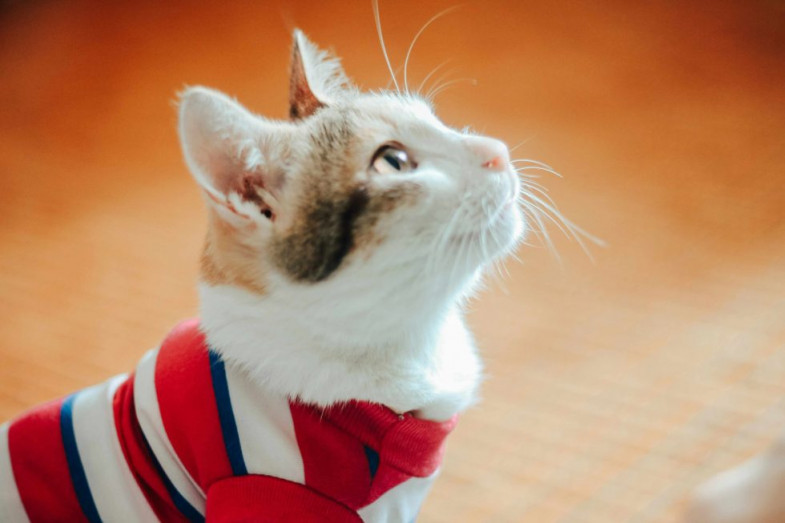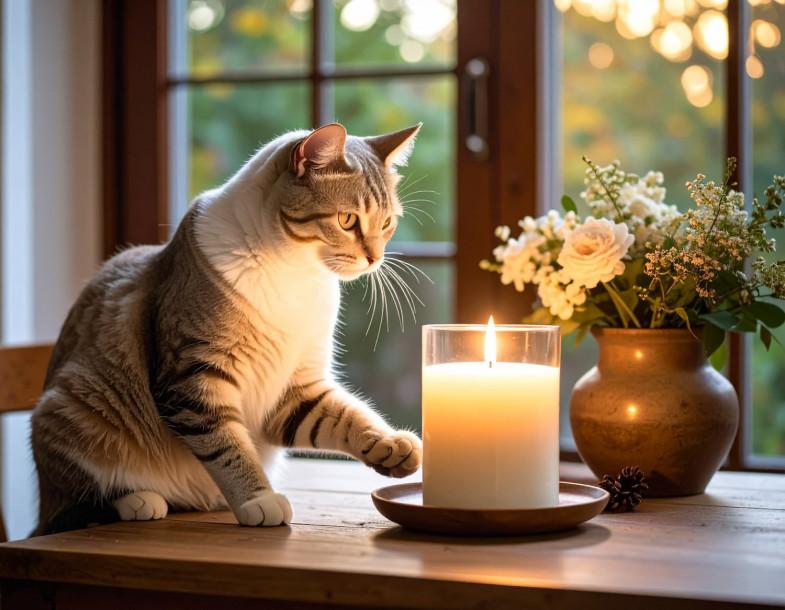Turner Veterinary Clinic News
Halloween Can Be a Scary Holiday for Pets

Don’t Share Your Candy
If anyone breaks out the treats before Halloween, instruct them not to share with
the family pet regardless of how much he stares at them with sad eyes.
Chocolate is especially problematic for pets because it can cause diarrhea,
vomiting, and other symptoms associated with gastric distress. The artificial
sweetener Xylitol may cause similar problems. If you really want to give your pet
a treat, order something especially created for pets from our online store.
Pets Should Remain Indoors
The doorbell ringing and seeing groups of excited children at the door can be too
much for your pet to handle. He may try to slip out the door or even become
aggressive. To avoid these issues, plan to keep your dog or cat in an area of the
house where you can close the door, and reduce noise and anxiety causing
stimuli. Be sure to provide his food, bedding, and toys while he stays in the room
and check in frequently to make sure he’s okay. You can even buy food puzzles
(which lengthen time your pet engages with his food) or toys from our online
store to help pass the time.
Another reason pets should stay inside is that October 31 tends to bring out
people who like to play pranks or are deliberately cruel to animals. Due to
unfounded superstitions about them, this is especially true of black cats. The
problem is so widespread that many animal shelters will not allow people to
adopt a black cat on or near Halloween.
How to Choose a Safe Costume
Some stores sell such adorable Halloween costumes for pets that it can be hard
to resist buying one. If you choose to dress up your dog or cat, be sure you’re
always nearby to supervise. Ensure he has no breathing obstructions and can
see clearly. Very importantly, watch him carefully for signs of irritation, discomfort
or fear which may indicate that he is probably not enjoying being dressed up for
the event. Also remember that your pet might chew on the costume and end up
swallowing a piece of it. A close eye on your pet’s environment is definitely a
“must” for Halloween.
Should you experience an emergency with your pet, call us at 269-962-9955. If it
is after hours, you’ll be directed for the appropriate number to call. Happy
Halloween from the staff of Turner Veterinary Clinic!
Image credit: JasonOndreicka / Stock / Getty Images Plus
Categories
Recent Posts

When was the last time your pet saw the veterinarian for a checkup, not because they were sick, but just to stay healthy? Preventive care is one of the most important ways to give your pet a longer, happier life. It’s not about doing one big thing. It’s about the small, consistent steps that help avoid bigger health problems later on.

The holidays are full of sparkle, laughter, travel, and to-do lists a mile long. As joyful as this season can be, it often means busier schedules and less time for everyday routines. In the middle of the holiday rush, it's easy to overlook one very important family member: your pet.

If you're lucky enough to have a senior pet, you know just how special that bond becomes over time. From cozy afternoons on the couch to the look in their eyes that says, "I've known you forever," there’s a deep and quiet understanding between you. As pets get older, though, their needs change. Aging isn’t a disease, but it does require us to adapt how we care for our beloved companions.
The good news? With the right care and attention, senior pets can enjoy happy, healthy golden years. Here are seven simple but meaningful health tips to help your older dog or cat feel their best.

Has your dog seemed a little more reserved lately, or is your cat less interested in playing with their favorite toys? It can be easy to attribute these changes to aging or mood, but pets are experts at hiding discomfort. The good news is that there are plenty of subtle signals that can provide clues that your pet may be experiencing pain, and many treatment options to help alleviate this discomfort.

Did you know that pets accidentally start nearly 1,000 house fires every year in the United States? It’s a scary thought, but it doesn’t have to be a reality in your home. Our furry companions are naturally curious and love to explore their surroundings, but sometimes their adventures can put them, and your entire household, at risk. The good news? With a little awareness and a few easy changes, you can protect your pets and keep your home safe from fire hazards